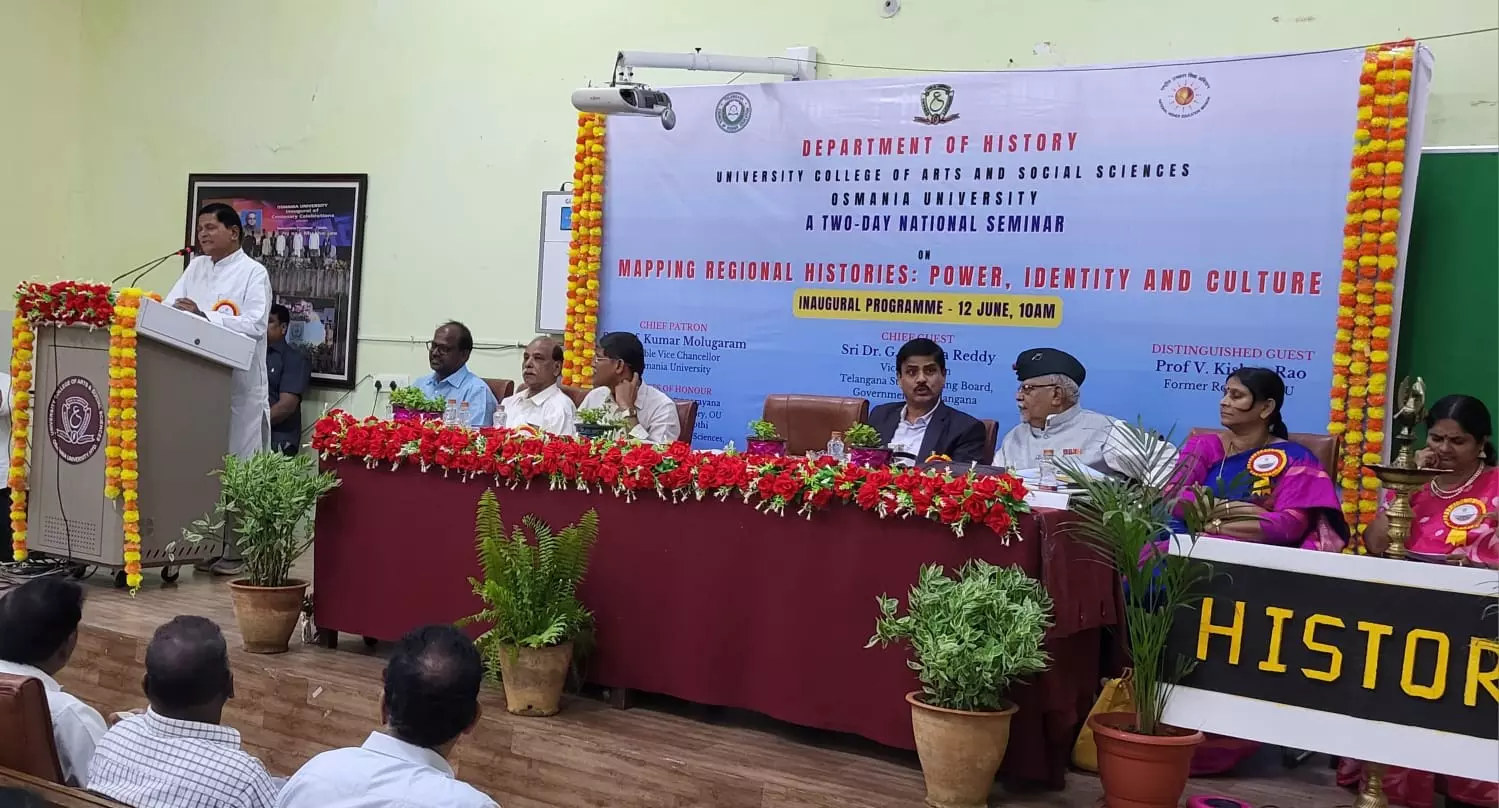Scholars Stress Need To Rethink Regional Histories
Speaking at the inaugural session, Telangana State Planning Board vice-chairman Dr G. Chinna Reddy said, “Without understanding the specific histories of regions, one cannot meaningfully interpret national or global developments.

Hyderabad: The issue of how communities remember their past, and which parts get recorded, formed the topic of discussions at a national conference held at Osmania University on Thursday, where historians debated the role of regional histories in shaping broader narratives.
Hosted by the department of history, scholars stressed the need to look beyond mainstream accounts and explore the role of local identities, movements, and power structures.
Speaking at the inaugural session, Telangana State Planning Board vice-chairman Dr G. Chinna Reddy said, “Without understanding the specific histories of regions, one cannot meaningfully interpret national or global developments. Local experiences shape collective memory and policy.” He also pointed out the importance of supporting regional research through public institutions, assuring that the state government remains committed to strengthening higher education.
The conference, titled “Mapping Regional Histories: Power, Identity, and Culture”, brought together researchers from across the country, with over 100 papers presented on a wide range of themes, including caste and community histories, tribal resistance, gender and identity, cultural memory, and science and technology in historical contexts.
Captain Dr Lingala Panduranga Reddy, head of the Centre for Telangana Studies at the Marri Chenna Reddy Human Resource Development Institute, in his keynote address argued that regional histories were not merely academic, they helped communities reclaim erased narratives and understand the present in more nuanced ways.
Prof Kumar Molugaram, Vice Chancellor of Osmania University, reflected on the institution’s own historical role in shaping discourse in the region. “Telangana has a distinct historical character that’s often overlooked. Documenting that diversity is not just about the past, it’s a way of shaping informed, critical citizens,” he said.
The event also featured reflections from senior historians such as Prof. Adapa Satyanarayana, who spoke of the need for methodological rigour in historical research, and Prof. Lavanya, Dean of UGC Affairs, who presented the conceptual framework behind the conference.

